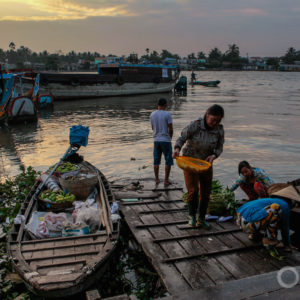The Stream, July 20: India Coal Plants Unable To Rely On Wastewater
The Global Rundown
Coal-fired power plants in India do not have enough access to treated wastewater to use it for their operational needs, despite a policy encouraging such use, according to a recent report. Communities in Brazil that were hit by the Zika virus continue to have inadequate access to water and sanitation. China produced more than a million metric tons of desalinated water each day last year. Government officials in Kenya are rushing to control a cholera outbreak in the capital. Flash flooding caused extensive damage in Cornwall, England this week.
“It’s been absolutely unbelievable to see. I think it’s going to take a little while to get this sorted out and tidied up but obviously the main thing is that nobody’s been injured and everybody is OK in the village.” –Adam Paynter, council leader in Cornwall, after flash flooding this week caused an estimated $1.3 million in damages in the British town of Coverack. Floodwaters rose to more than 1 meter in depth and sent boulders cascading through the town. (Guardian)
By The Numbers
1.18 million metric tons Amount of water produced by desalination plants each day in China last year, 66 percent of which was used for industrial purposes, according to a report released by the State Oceanic Administration. Xinhua
4 people Number killed by a cholera outbreak over the past two months in Nairobi, Kenya. To control the spread of the disease, government officials said broken sewer lines would be repaired, water vendors would be certified, and a hotel and restaurant in the capital city would be shut down. Reuters
Science, Studies, And Reports
Little more than a year after India began requiring coal-fired power plants near wastewater treatment facilities to use treated wastewater for their operations, the majority of the country’s power plants cannot comply with the policy, according to a report released by Greenpeace India. The report found that only 8 percent of coal plants in the country have enough access to wastewater to fulfill their water needs, making the solution untenable. The Third Pole
In context: Chased by drought, rising costs, and clean technology, India pivots on coal-fired power.
On The Radar
Underlying inadequacies in water and sanitation access continue to plague communities in Brazil who are most vulnerable to the Zika virus, which is transmitted by mosquitoes and can cause severe birth defects, an investigation by Human Rights Watch found. The burdens created by these conditions fall disproportionately on women and girls, the organization said. Human Rights Watch
In context: Water a key factor in Zika virus spread.
A news correspondent for Circle of Blue based out of Hawaii. She writes The Stream, Circle of Blue’s daily digest of international water news trends. Her interests include food security, ecology and the Great Lakes.
Contact Codi Kozacek



